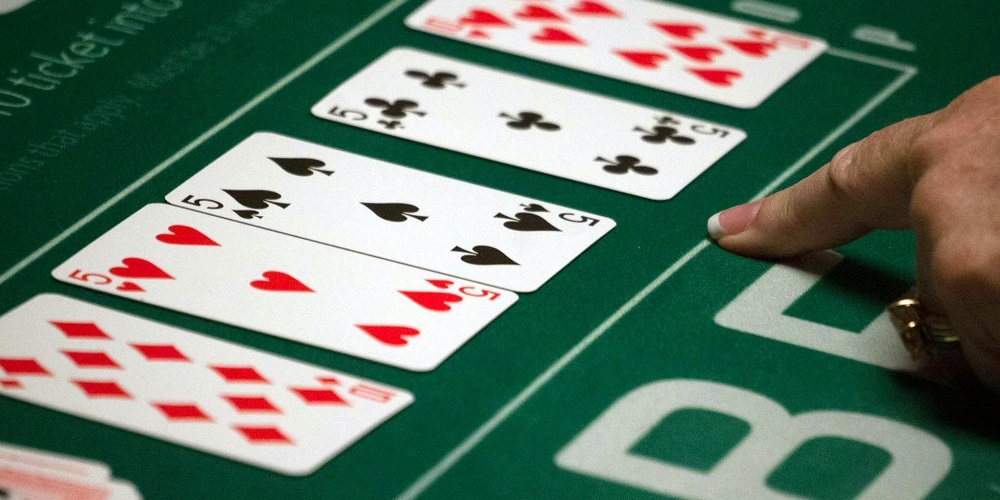If you are disciplined and maintain your level of training and study, you will become a better and better poker player. There will come a time when you will stop being a novice without even realizing it, but you will still be a long way from rubbing elbows with the most pro players.
To continue on this path and be able to refine those aspects that still have room for improvement, we have prepared a series of tips for you to put the focus on what can catapult you to the top of online poker.
Be good at BRM
Bankroll control is fundamental to guarantee your continuity in poker. Whether you can continue playing or not depends on it, and knowing how to make a measured and appropriate use of your chips is essential to be able to continue enjoying the competition.
Although it is something you should start learning when you take your first steps in poker, it is something continuous that you will need to do throughout your career, so never lose sight of your bankroll and learn to manage it better and better.
Master odds and outs

As you continue to improve in poker you will find more and more concepts and English terms that refer to a specific aspect of the game. Odds and outs are two of those concepts that you will need to master in order to be a good poker player.
Odds are the probabilities of a particular event occurring. For example, a card on the turn or river that allows you to bind your hand. It is a concept that you must master and learn how to calculate.
Outs are the cards that have not yet come out and that would allow you to improve your hand. Calculating them allows you to always have a panoramic view of the game, and to control the chances that your hand can get that extra “upgrade”.
Specialize in reading tells
Another one of the best poker tips we can give you: that you become proficient in reading tells. For many, this is pure instinct, but it is a gift that can be trained. Knowing how to read the gestures and small tics of a player can reveal a lot of information, very useful to make our next decision. Being good at this gives you an important strategic advantage.
Avoid the tilt

Although most of the tips we give are tips to win at poker, there are others that serve to stop losing. Yes, we are talking about tilt, a concept that refers to the negative and pessimistic tendency that makes the player, after a bad result, enter a loop and chain a series of bad results.
All players are exposed to suffer from tilt, and that is why it is important to relativize the results. That’s why one of the best poker tips for intermediate players we can give you is not to beat yourself up for failing. Poker is about learning, and getting into that negative spiral won’t help you at all.
Keep a training pace
Some of the tips for playing poker that you will find in our posts are cross-cutting, that is, useful regardless of the stage you are in. Training is something continuous, that should never stop and that allows you to keep your mind trained and oiled.
Maintaining a discipline and a schedule of analysis and training in poker is especially important as you go up in level. It is not only about playing, but also about understanding and looking for ways to improve the next time.
Take on the role of variance
We’re getting into a bit of a quagmire here. Variance is one of the most abstract concepts and even feared by some players. Variance in poker refers to the fact that you can get a bad result even with a good hand. No one is free from variance, even the best players suffer from it, and calculating or predicting it is complicated.
So, for now, one of the best poker tips we can give you is to simply assume that variance is there, that you can’t avoid it and that it is innate to poker.
Be more aggressive and selective

The higher level you have, the more selective you will become with the hands you play. This also depends on the profile of each player, but the (appropriate) tendency is that.
Also, when you play a hand, playing it aggressively is the best. And better if it is from preflop with premium cards, because that will allow you to play from a particularly good position, punch above the table and put you above them.
Start reading the tables
Just as important as knowing how to read the players is learning how to read the tables. The game and its possibilities are going to change a lot compared to other tables, and knowing how to enter the one that best suits you and your bankroll is going to be crucial.
This is especially useful in those platforms with a wider offer of games, where the variety of tables is especially high and where knowing how to choose is of vital importance.
Try new poker games

When you specialize in a poker modality, we recommend some freshness. Poker requires so much dedication that it can become saturated, but if you try a new kind of poker, you might get that breath of fresh air that you need and that can give you the necessary stimulus to motivate you again.
Take time to analyze your game
Make no mistake: even if you have improved as a player, you will still need to use post-game analysis software to find flaws and vulnerabilities in your decision making. So, what better way to close our compendium of the top 10 tips for playing poker as an intermediate player than by reminding you of the need to continue to spend time analyzing the games you play.
It will be a great help for you to continue to level up and become a true online poker pro.
If you were interested in this post, you can’t miss the content of the following articles:

